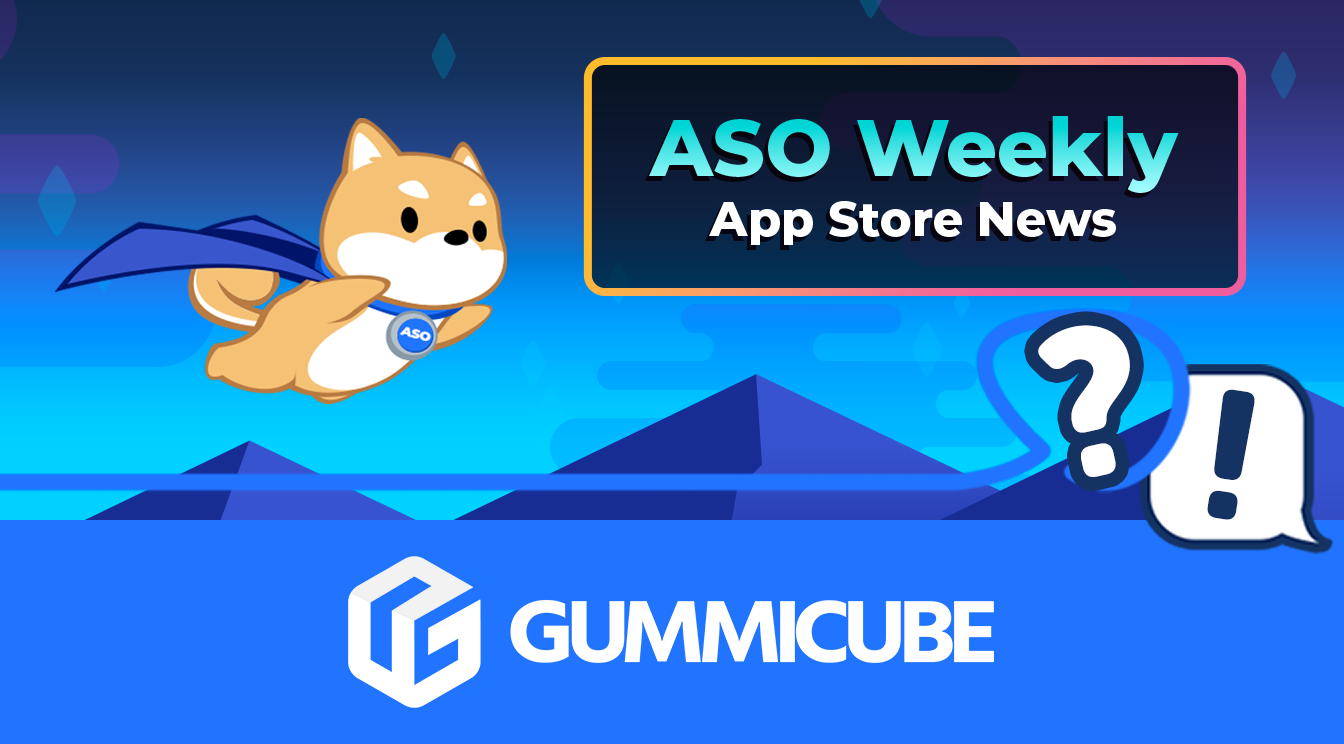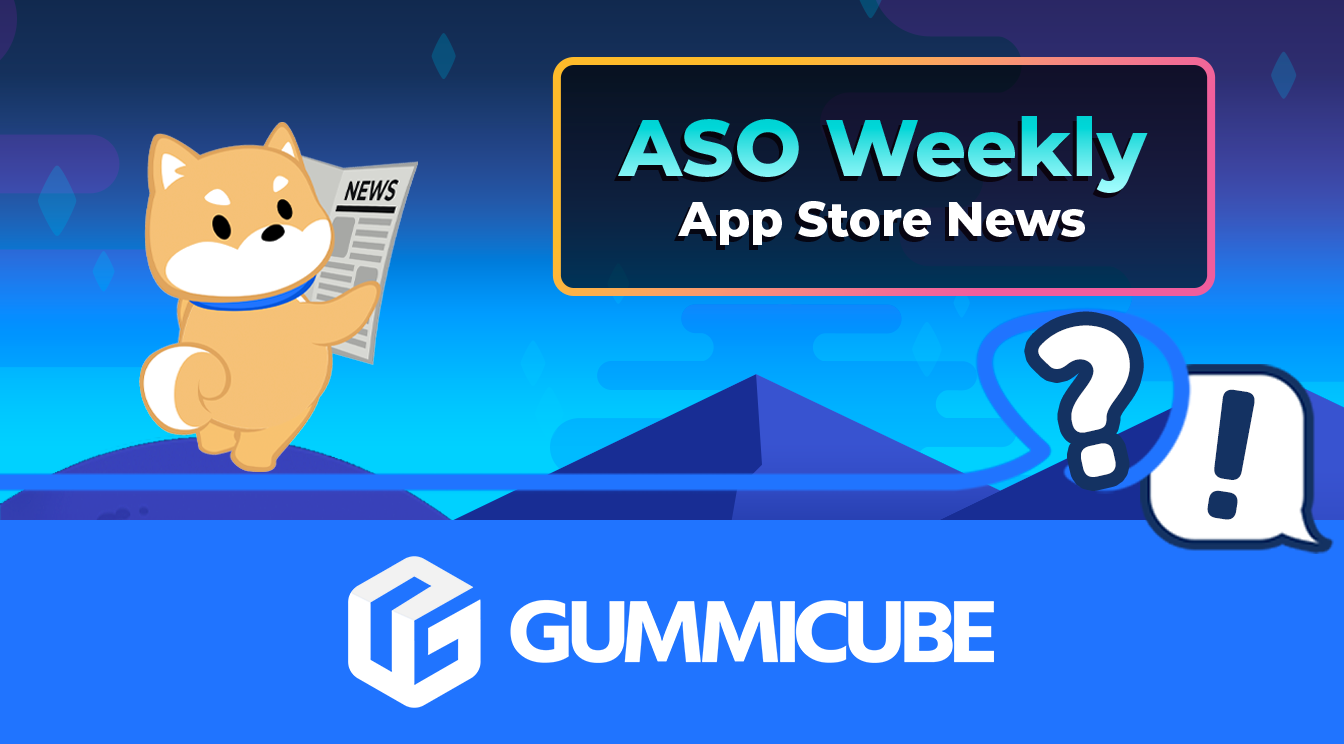
App Store News - Gambling Ads Nixed, New NFT & Crypto App Regulation
Posted on October 28th, 2022
Welcome to this week’s ASO Weekly - The App Store halts gambling ads amidst outcry and the Apple takes a bite out of NFT app sales.

Acquiring relevant users organically in app store search is the primary focus of app store optimization. Where your app appears in search results has a large impact on how many potential users find your app in a search. Maximizing the ranking for specific search terms improves where the app ranks in its category as well - leading to even more organic discovery. How then do app publishers and marketers impact better app store rankings?
Google has shared ranking factors and tips, specifically calling out the importance of ratings, reviews, downloads and the copy used in the app listing. In the same post, Google provides additional tips about regular updates, engaged users, acquiring ratings and responding to reviews. As web and mobile app terms start to converge - specifically Google changing “visitors” in their Google Analytics service, to “sessions” - some of the models known to be used when indexing the web surfaces in the Google Play store ranking algorithm. The rate at which a web site converts a user to a web page view (searcher clicks on a link in search results) is a basic conversion rate that is also used in the app stores. Similarly, web metrics like bounce rate, time on page and number of pages visited corresponds roughly to app opens, time in app and retention (the app remains on the device). How Google indexes and ranks mobile apps for Google Play parallels the things marketers see on the web. The main difference is what we are optimizing for - app store search vs web search. The simple example to demonstrate the difference in user intent is search “malls” in Google web search, and then in Google Play. Different results for different expected user intentions. Armed with this general framework for the Google Play ranking factors, let’s review 5 tips for a better Google Play ranking.
The rate at which an app converts an appearance in a specific search result into an install. If users find your app a relevant result and attractive option at a greater rate than other apps relative to its position in the results - Google will increase your ranking for that specific search all else being equal. Improving your app’s conversion rates improves installs and the app store ranking, and also provides a greater opportunity for acquiring ratings and reviews (our next tip). Google historically has been very good about measuring websites and apps on specific criteria and then providing tools to help publishers and developers improve the measured criteria. Conversion optimization is no different, with Google providing an “experiments” module in the developer console for creating multivariate tests on an app’s creative elements, title, description and even the order of screenshots.
The volume and quality of ratings and reviews has always played a big part of an app’s Google Play ranking. Among the differences between Apple and Google, better ratings are more closely associated with the top apps in Google Play than for Apple’s top apps. Additionally, Google allows (and expects) developers to respond to reviews in Google Play. If you don’t have a mechanism for acquiring app store reviews, or managing customer service issues outside of the store ratings system - take a look at Apptentive and our post on app reviews. The Google +1 button is incorporated along with other social signals in ranking criteria. We’ll cover social signals in Tip 4, but the +1 kinda falls into both areas - so worth mentioning here. Consider adding a +1 button somewhere in your app similar to how you would request ratings and reviews.
The best Google Play Store ranking advice - Make a Great App. Not super helpful or actionable. What’s a great app and how would one measure that? The market votes, and they vote with their time and money. How long sessions last (relative to similar apps), the frequency of sessions and how long an app remains installed on a device are all votes by the market. Google incorporates similar metrics in their web rankings, so it should come as no surprise that these factors are also weighted in the Play Store algorithm. Building a great app is outside the scope of this article, but it starts with mastering your in-app analytics.
This is the catch-all term that describes social signals like a blogger mentioning the app and people sharing on Facebook or G+, to mentions by the press. Anything that generates a link back to the Google Play store listing. Acquiring +1s is good practice, as is acquiring links from reputable and relevant web properties. Full service app marketing agencies should incorporate the acquisition of backlinks in their app marketing strategy.
App store data consistently shows the majority of app store searches are features-based phrases. Focus on your app’s most important and distinguishing features, using the phrases your target market uses to describe these features, in your app title and short description. Complete your “full description” by again listing most important and supplementary features and benefits using all the space allotted. The app title and short description provide much of the guidance to Google for the specific features of your app, while the category and full description add context and support.
Most of these tips are related to each other and have a synergistic effect when optimized. A better system for prompting and managing ratings and reviews makes efforts around conversion rate optimization more rewarding. A better app both drives more positive reviews and better engagement and retention.

Welcome to this week’s ASO Weekly - The App Store halts gambling ads amidst outcry and the Apple takes a bite out of NFT app sales.

Welcome to Gummicube’s ASO Top Trends Vol 3 – a quick, one-stop-shop for the latest developments in ASO.

App Growth Summit (AGS) in San Francisco is a once-a-year event where some of the biggest names in the app marketing and mobile marketing industry come together to share industry insights.